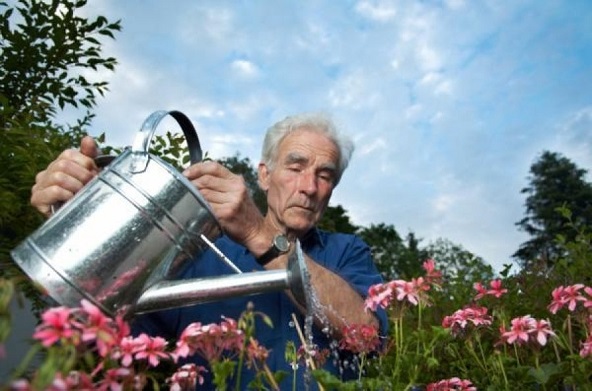
As it is Alzheimer’s awareness month, we have put together a guide on how to create a dementia-friendly garden.
Currently in the UK there are more than 850,000 people with Alzheimer’s and it is suggested that there will be over 1 million by 2025.
Research has shown that gardening is good for you physically and mentally, with many claiming it can help your mental health. It provides stimulation, a sense of purpose, change of environment and an improved mood. The presence of different coloured flowers, a mixture of plants and varied wildlife has a healing effect, even when viewed indoors. When out in a garden, people feel at one with their natural surroundings: the smells, the sounds and the fresh air. It also provides peace and quiet that can help to relieve stress, anxiety and agitation.
If your space allows we have got some great tips on how to tailor your garden so that it is Alzheimer’s friendly!
Feeling safe
People with Alzheimer’s need to feel safe in their garden, and making the boundaries secure will encourage them to use it. If there is a high wall or fence, try to cover this with shrubs, hedges or trees so that it looks more natural. Add rails where possible to help with steady walking or even have a path wide enough for wheelchair use to help prevent falls.
Access
Raised beds offer an easily accessible way of gardening. These can be built at various sizes to fit your needs, whether preferring to stand, kneel, sit on the ground or on the side of the bed. We would also recommend for the width to be approximately 1000mm, so that you can have access to all sides.
Create flow
Avoid having paths that lead to dead ends as these can cause confusion, a figure of 8 or circular garden paths are best.
Sensory Stimulation
Gardens provide excellent sensory stimulation so make sure to include flowers with colours, different textures and different scents. Water features or sculptures will also provide sensory stimulation.
Seating
Where possible try to include seating so there is a place to rest and to enjoy the views outside. Even if no gardening activities are planned, sitting out in the fresh air is a great change of environment.
Wildlife
Incorporate feeders and birdbaths to increase wildlife activity. Animals can increase relaxation and improve the natural surroundings.
Gardening tasks
Sowing seeds, planting seedlings, deadheading flowers and harvesting vegetables are all great therapeutic activities. Although a raised bed would create the space for that, it can be done without it.
It is always best to pre-plan any gardening activities to make sure you have the right materials and safe tools to use. It might be watering the flowers or creating new planting pots, but it’s best to think ahead to ensure the task is successful and enjoyable.
Plenty of research has gone into Alzheimer’s and Dementia, and although no cure has been found, medical research has proven that those who are more active lose less gray matter in key brain areas responsible for memory and cognition. So even if it is just a walk in the garden or planting vegetables, it can help to keep you active and stimulate the mind!



